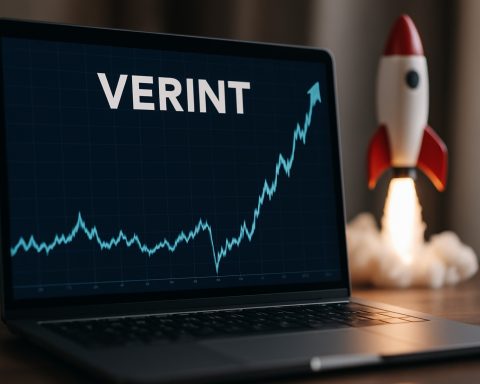Washington, D.C. — As the new year approaches, Congress is gearing up for a heated debate on the future of the Inflation Reduction Act’s (IRA) clean energy tax provisions. With a staggering cost of over $870 billion projected from 2022 to 2031, lawmakers are considering significant reforms to these clean energy incentives to ensure fiscal prudence.
The IRA, a landmark climate legislation, aimed to shift the energy landscape by promoting clean energy investments and reducing greenhouse gas emissions through various tax incentives. However, the real cost has doubled from initial estimates, sparking a call for a reassessment of these provisions.
Fiscal Impact and Legislative Priorities
Reform options on the table include simplifying the eligibility criteria of these tax credits and removing specific bonuses tied to domestic production and community investment. By making these credits technology-neutral and potentially repealing certain provisions, Congress could see savings of up to $852 billion between 2026 and 2035.
Previously granted tax credits range across production and investment in clean energies, to transportation initiatives aimed at promoting clean vehicles and fuels. Yet, with the looming budgetary pressures, the necessity of each credit is under scrutiny in terms of its simplicity, efficiency, and long-term fiscal sustainability.
The Congressional Budget Office estimates that undoing these provisions might better align with broader tax policy goals while recovering a significant portion of the initial outlay.
As discussions ensue, the sustainability focus remains: how will Congress balance climate action with financial discipline? Observers anticipate vigorous debates, with potential shifts in energy policy priorities and impacts on green technology markets.
Controversial Debate Looms Over Reforming Clean Energy Tax Provisions
Washington, D.C. — As Congressional leaders prepare for a pivotal session, the focus sharpens on the Inflation Reduction Act’s (IRA) clean energy tax provisions and their long-term viability. This crucial legislation, which has caught the spotlight with its expanding fiscal impact, is poised for intense scrutiny and potential overhaul. Here’s a comprehensive insight into the unfolding developments and their implications.
Fiscal Strategy and Legislative Revisions
With the Inflation Reduction Act originally heralded as a landmark in climate legislation, its escalating cost projections—now over $870 billion from 2022 to 2031—have triggered discussions on redefining and revising existing tax provisions. The essence of the debate hovers around making these incentives technology-neutral and withdrawing special bonuses, thus simplifying the criteria for eligibility. This strategic pivot could pave the way for saving up to $852 billion between 2026 and 2035.
Key Features and Market Implications
The IRA’s climate provisions encompass a spectrum of incentives targeting renewable energy production, investment in clean technologies, and the promotion of sustainable transportation solutions like clean vehicles and alternative fuels. However, budgetary constraints necessitate a re-evaluation of these credits for effectiveness and fiscal prudence. This re-evaluation might reshape energy policy priorities and influence the green tech market landscape significantly.
Pros and Cons of Proposed Reforms
– Pros:
– Simplification of tax credits could potentially streamline compliance and reduce administrative overhead.
– Technology-neutral incentives encourage innovation and a broader spectrum of clean solutions.
– Significant budget savings could be re-allocated to other pressing fiscal priorities.
– Cons:
– Repeal of targeted bonuses might reduce incentives for domestic production and community investment in green technologies.
– Potential short-term disruptions in the clean energy sector as companies adjust to new regulatory frameworks.
– Uncertainties in the investment landscape might deter future capital inflows into green technology ventures.
Predictions and Trends
Looking ahead, the legislative outcome of these debates will likely reshape how the U.S. approaches climate policy and fiscal discipline. Industry observers anticipate a dynamic shift as energy markets adapt to new legislative landscapes and potentials for innovative clean technology solutions. The ability of Congress to balance fiscal responsibility with ambitious climate goals will set a significant precedent.
In light of these discussions, lawmakers and industry stakeholders will need to navigate the complexities of clean energy transition while ensuring economic viability and long-term sustainability. For more information on energy policies and legislative developments, visit Department of Energy.











